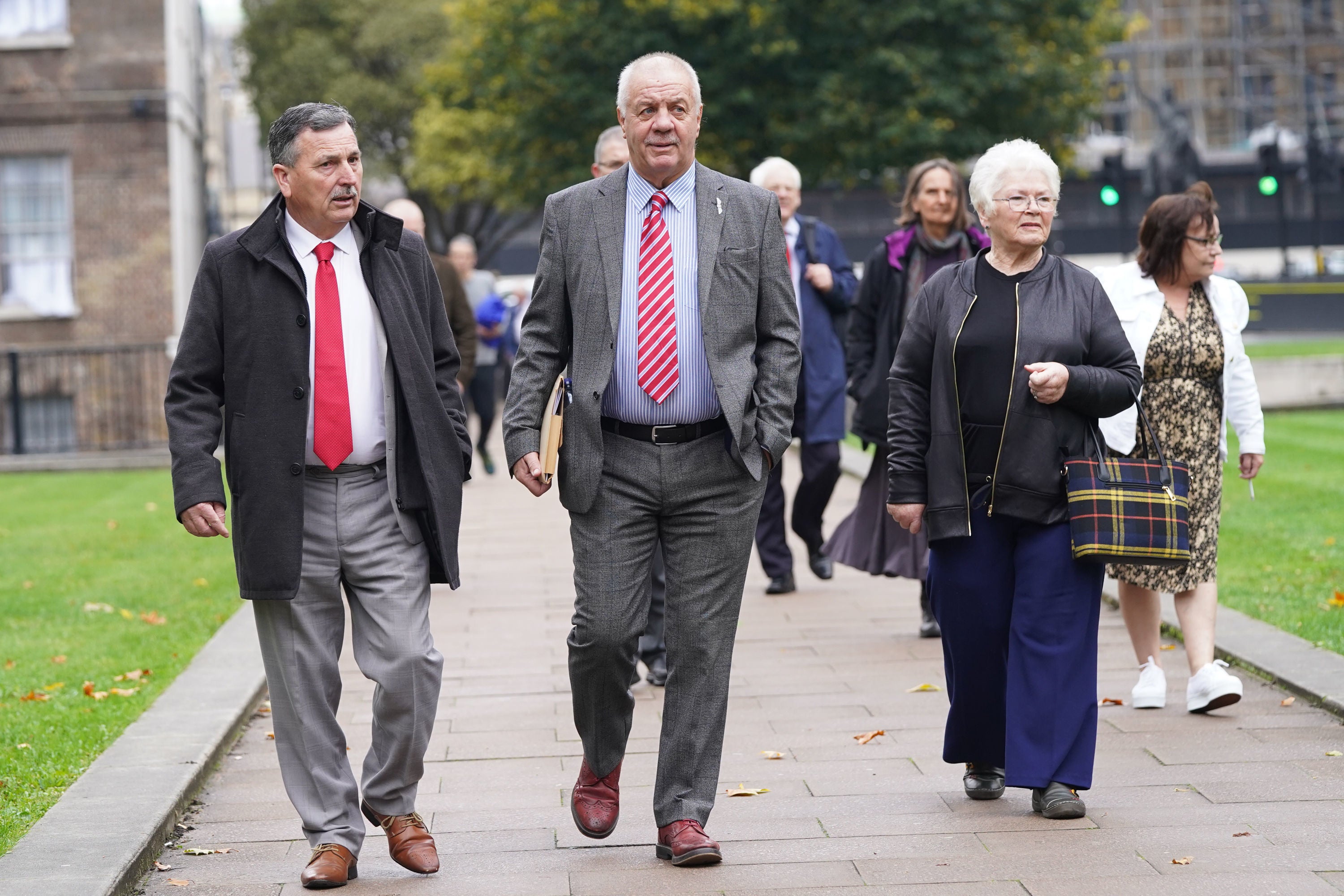Troubles victims to protest at Westminster as legacy legislation debated
Campaigner Raymond McCord said the draft laws would mean terrorists could admit to mass murder of civilians and ‘walk away with immunity’.

Your support helps us to tell the story
From reproductive rights to climate change to Big Tech, The Independent is on the ground when the story is developing. Whether it's investigating the financials of Elon Musk's pro-Trump PAC or producing our latest documentary, 'The A Word', which shines a light on the American women fighting for reproductive rights, we know how important it is to parse out the facts from the messaging.
At such a critical moment in US history, we need reporters on the ground. Your donation allows us to keep sending journalists to speak to both sides of the story.
The Independent is trusted by Americans across the entire political spectrum. And unlike many other quality news outlets, we choose not to lock Americans out of our reporting and analysis with paywalls. We believe quality journalism should be available to everyone, paid for by those who can afford it.
Your support makes all the difference.The families of Troubles victims are due to travel to Westminster on Tuesday to protest against the UK Government’s introduction of controversial legacy legislation.
A delegation from the Relatives for Justice group will gather in Parliament Square at 1pm, and will then walk to 10 Downing Street to hand deliver a letter setting out opposition to the Bill at 2.30pm.
The UK Government has said the Northern Ireland Troubles (Legacy and Reconciliation) Bill aims to provide better outcomes for victims, survivors and veterans.
Introduced to the House of Commons last week, the draft laws offer immunity to those who are deemed to have co-operated with an information retrieval body.
The Bill would also stop future inquests and civil actions related to the Troubles, although it does not fully close the door to criminal prosecutions.
The proposed legislation has been widely criticised by Northern Ireland’s political parties, as well as victims’ campaigners, the Irish Government and Amnesty International.
The Bill is due to go through its second reading on Tuesday, in which the main principles of the Bill are debated by MPs. Three stages are due after that before the Bill can be voted into law.
Mark Thompson, chief executive of Relatives for Justice, said the Bill “undermines fundamental human rights enshrined within the Good Friday Agreement and the very institutions that flow from the agreement”.
“Boris Johnson and Brandon Lewis are usurping the powers of the North’s attorney general, the Lord Chief Justice and judiciary in an unprecedented political overreach by a western government into the criminal justice system.
“They are locking down the courts and administration of justice.”
Victims campaigner Raymond McCord, of The Truth and Justice Movement, said he will be in Westminster as the legislation is debated on Tuesday, and told the PA news agency the Bill would mean victims are left with “no recourse to justice”.
Mr McCord said: “The legacy Bill must not and cannot pass into law. Victims and their families’ rights will be abolished by Boris Johnson unless all those who believe in truth, justice and democracy stand together.
“The terrorist murders of innocent children, women and men will no longer be classed as crimes.
“Terrorists can admit to mass murder against civilians and they can walk away with immunity thanks to the Prime Minister. No one would have dreamt that the Prime Minister would be seen as the hero to terrorist organisations and their killing squads, but that’s what his legacy will be.
“Victims mourning with no recourse to justice, while the murderers – be they terrorists or state forces – no longer can be investigated or prosecuted. No inquests for the dead or civil actions by their families.
“Immoral, corrupt and utter contempt to the victims is Boris Johnson’s idea of justice and moving on. We will not accept the most repugnant cover-up in the history of the UK.”
Mark Kelly, whose 12-year-old sister Carol Ann was killed by the British Army in 1981, said the Bill would “deny all families who had loved ones killed truth, justice and accountability, irrelevant of who the perpetrators were”.
“It will close down investigations, inquests, police ombudsman inquiries and civil cases.
“These investigative processes are working perfectly well, and to good effect, on behalf of families save for interference by the British Government.
“That is precisely why the British Government has unilaterally tabled this amnesty Bill despite being fully aware of universal opposition to their amnesty plans. There is no support for this Bill whatsoever.
“The Irish government, all the political parties here and the opposition parties in Britain oppose this Bill – but most importantly, victims from across the community oppose the Bill.”